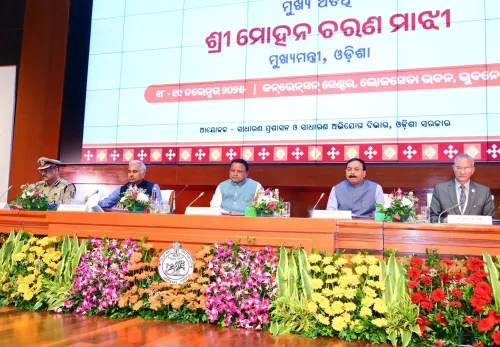Is the Milk Situation in India Really Stable?

Synopsis
Key Takeaways
- Milk production in India is projected at 239.30 million tonnes for 2023-24.
- The government monitors the milk market closely to ensure stability.
- India adheres to WTO regulations for international milk trade.
- Initiatives like Rashtriya Gokul Mission aim to enhance indigenous cattle breeds.
- Support for dairy cooperatives is crucial for farmers' livelihoods.
New Delhi, Aug 19 (NationPress) The current milk situation in India remains steady due to sufficient commodity reserves held by various stakeholders, as stated by the government in a response to Lok Sabha on Tuesday. This announcement addressed concerns regarding the potential need for milk imports amid fears of a significant shortfall in domestic production.
Minister of State for Fisheries, Animal Husbandry and Dairying, S.P. Singh Baghel, replied to queries from T.R. Baalu, revealing that the projected milk production for the year 2023-24 is estimated at 239.30 million tonnes, translating to a per capita availability of 471 grams per day.
He emphasized that the government, in collaboration with State/Union Territory milk federations and other stakeholders, continuously oversees the milk market in the country.
Baghel noted that India is a member of the World Trade Organisation (WTO) and adheres to all WTO regulations pertaining to international trade, including the agreement on Sanitary and Phytosanitary (SPS) measures.
The MoS explained that milk products meeting India's SPS standards and relevant import tariffs are brought into the country in limited quantities.
To boost domestic milk production and safeguard the dairy sector, the government has initiated the Rashtriya Gokul Mission, which focuses on the conservation and enhancement of indigenous bovine breeds through scientific breeding and genetic improvement aimed at increasing productivity.
Moreover, the National Programme for Dairy Development intends to improve the quality of milk and dairy products while expanding the share of organized milk procurement.
The Supporting Dairy Cooperatives & Farmer Producer Organisations (SDCFPO) initiative enhances the capacity of dairy cooperatives and farmer groups by providing working capital loans and improving market access, ensuring timely and fair payments to dairy farmers.
Baghel also mentioned the Animal Husbandry Infrastructure Development Fund, which encourages private sector investments in dairy processing, meat processing, animal feed production, breed enhancement, vaccine manufacturing, and waste management.
Earlier, Baalu had inquired whether the government would need to import milk and dairy products due to a significant shortfall in domestic production.
Additionally, he asked if a recent study by SBI indicated that imports of dairy products could negatively impact the livelihoods of domestic milk producers.







